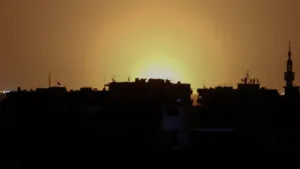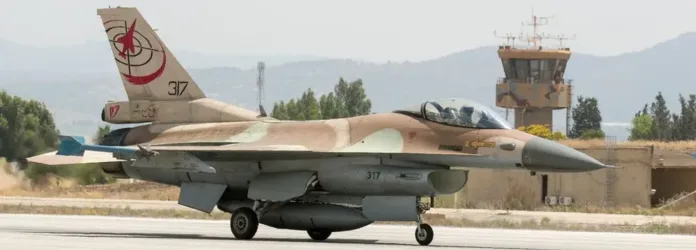Bold Declaration, Israeli military activities in Syria
Officially focusing mostly on , the Israeli Defense Forces (IDF) constitute a significant military and geopolitical advancement. IDF Chief of Staff Herzi Halevi said, “The major fighting front will move to Syria starting tonight. We will start fighting on the Syrian front and won’t let anyone pass our borders. This remark marks a change in Israel’s approach to defend its northern front given growing Middle Eastern tensions.
Airstrikes Transform the Scene by targeting Damascus
Apparently, Israeli strikes as part of this shift have focused on critical Damascus, Syrian capital facilities. Among the goals were Mezzeh Military Airport and the immigration and passport office. The devastation of these significant sites highlights the IDF’s intent to disrupt Syrian operational and logistical capacity.

Israeli Forces Advance on Mount Hermon Quiet Opposition
Free from resistance, Israeli forces advanced onto the Syrian side of Mount Hermon. This deliberate conduct not only attests to Israel’s presence in the region but also highlights the apparent lack of ability or will of local authorities to stop the incursion.
Rebel Response by giving Unity Above Conflict Top Priority
The Rebel Southern Operations Room, a collection of resistance groups in Syria, issued a statement acknowledging their present inability to stop Israeli advancement. “This does not longer rank highly for us. Reflecting the diverse interests of Syria’s opposition organizations, the group declared we should concentrate on creating a united Syria free of Assad.
A Region on Edge
Rising military activity by Israel in Syria has caused concerns all around. The most recent developments can sour regional ties and intensify already existing disputes. Given Syria engaged in internal conflict and Israel asserting authority on a new front, escalation is quite likely.
The focus of Israel is now paying on Syria signifies a sea change in regional ties. Beyond the front lines, Israeli military operations in Syria will most likely be felt in Middle Eastern security systems and political coalitions undergoing change.




